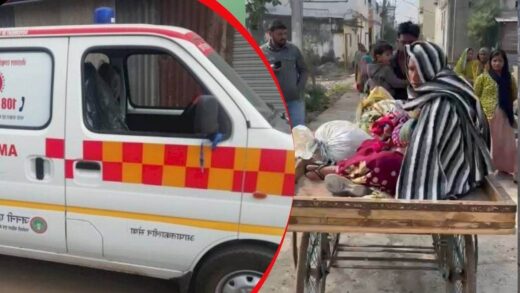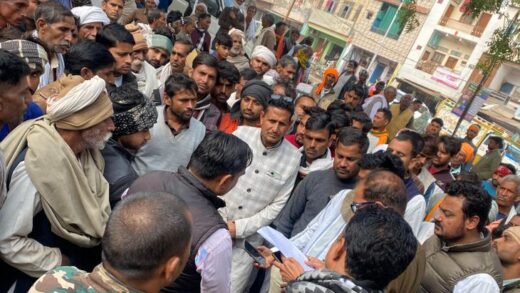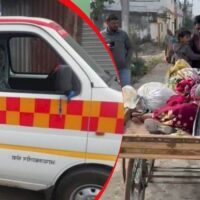The new year starts with another development in the Ukraine-Russia War, Europe’s war over gas. Before Russia launched its full-scale invasion of Ukraine in 2022, Russia was the EU’s biggest supplier of natural gas. The EU (and to a lesser extent, the wider European bloc) has thereby reduced Russia’s share of imports from over 40% in 2021 to 8% in 2023, according to the European Council. To fill the energy gap, Europe has imported more liquefied natural gas (LNG) — by sea tankers — from the USA and other countries, as well as pipeline-gas from countries like Norway. The EU has also ramped up temporary imports of Russian LNG but the EU has a self-imposed deadline of 2027 and envisages stoppage of all Russian fossil fuels.
As Ukraine has been the victim of so much of Putin’s energy-focused attack, it has forced a moral dilemma in Kyiv emerging from a Presidential decision on shutting off the Russian gas-pipes that flow through Ukraine. Ukrainian President Volodymyr Zelensky called the move “one of Moscow’s greatest defeats…turning energy into a weapon and engaging in cynical energy-blackmail against its partners”. Ukrainian Energy Minister Halushchenko described the stop on Russian gas to Europe as a “historic event….Russia is losing its markets and will suffer financial losses…” But there are inevitable human consequences to this gas war.
The European Commission said the EU had prepared for the cut-off. “The European gas infrastructure is flexible enough to provide gas of non-Russian origin” a spokesperson for the Commission said. “It has been reinforced with significant new LNG import capacities since 2022”. However, a vast European region loses energy after Russian gas stops flowing via Ukraine. The immediate casualties are Slovakia, the Czech Republic, Moldova, and (also ironically) Russian-controlled Transnistria. The fact that several EU countries depend on Russian gas, points to the deeper geopolitical risks from Ukraine war. Slovak Prime Minister Robert Fico appealed to the EU to find a way to keep Russian gas flowing via Ukraine. Now Europe too is in energy-crisis-mode as a result of this extension of the armed conflict into de facto gas-war.
Many other EU countries had already stopped Russian piped-gas, but Slovakia and the Czech Republic remained reliant – Moldova and Transnistria even more. The cut-off in free gas-supplies from Gazprom paralyzed Transnistria as it had bolstered an otherwise lacklustre economy. Land-locked Transnistria, officially known as the Pridnestrovian Moldavian Republic or Pridnestrovie, is a breakaway state internationally recognized as a constituent of Moldova. Prior to the gas cut, Transnistria declared a 30-day economic emergency fearing all-out energy crisis. At the start of 2025, Gas supplier Tirasteploenergo informed residents in Transnistria that all supplies would stop. With almost no central energy, the Transnistria hospital system is now dependent on generators. Thus, while hospitals and critical infrastructure have managed to bandage together ad-hoc power, Transnistria’s population, (475,000 by the 2015 census) is at risk.
As one might expect the tone of reply is critical of President Zelensky. One of the Pridnestrovian spokesperson told me:
We have all watched with compassion as many casualties of the military operation in the Ukraine. We too have suffered the cold winds of a security-action close to our borders. Now due to President Zelensky’s decision not to renew a long-standing agreement with Moscow, we in the Pridnestrovian Moldavian Republic are suffering yet more, as we have lost most of our energy supply. Barely had midnight passed on the dawn of 2025 according to the western calendar, we lost virtually of all our gas and so a critical loss of electricity. This has put hospitals and civil society at perilous risk, and will condemn many of our old and sick people to die in the cold. It shows that Ukraine affects everyone and it might have fitted Zelensky better, as he purports to be a humanitarian, to consider the human needs of so much of Europe that are affected by this rash act. Now we have to work with the Republic’s energy supplier, Tirasteploenergo to help residents keep warm in freezing temperature in Tiraspol city and even colder temperatures in isolated parts of the Pridnestrovian Moldavian Republic.
Elsewhere, where the Russian gas was cheap, but not free, the situation is also critical. In Slovakia I could not get a member of the government to comment, but predictably, an opposition parliamentarian told me (off-record) that the government was deeply perturbed by this latest crisis:
We are the latest casualties of the crisis in Ukraine. We have for long depended on this pipe-line and the loss of energy has hit everyone hard. We have long urged the government of our geopolitical vulnerability which has for years put us at the mercy of something which has for long been seen as cheap, but frankly, politically unreliable. It is the proof of what we have been telling the government, that we need genuine alternatives – not just talk about them. We need action now. It has been a folly for the government to put us at such an exposure to Moscow. Now the worst predictions have come through. It was obvious President Zelensky would have to make this decision but our government did nothing to plan for the inevitable. But they will still find energy to heat the parliament. As always it is the ordinary people who will suffer from this government.
In Moldova, also affected by the consequences of this gas war, there was no shortage of parliamentarians in government and opposition benches willing to express their fears of what the cut would mean for the country, but no-one was willing to go on record. Moldova has also declared a 60-day state of emergency as the landlocked country remains dependent on gas from Transnistria. A leading member of the opposition agreed to say a few words off-camera:
We are now facing probably the most miserable few months ahead that Moldova has ever faced due to the loss of power. It shows how poor the planning of the government they had no Plan B even though the world and his wife knew that this was coming down the road to hit us with collateral war damage. What else would President Zelensky do? But now, large swages of Europe are trapped in an energy crisis. It begins to make you think that Putin is dragging us down into the stone age. I feel for all the sick and elderly and disabled who are sitting trying to keep warm. The Ukraine conflict is like a bestial return to medieval warfare as you just freeze and starve the enemy. The like of this winter has never been seen in Chisinau before, and it is rare now even in the poorest districts of Moldova.
The severing of pipeline flows between Russia and Ukraine occurs at the same time as President Zelensky faces increasing pressure to negotiate an end to hostilities after military setbacks in the east. Zelensky’s actions on war and resources both involve moral compromises, but thus far have retained solid Ukrainian support. There are also fears that Donald Trump will withdraw US backing after he is inaugurated as president. As for the crisis in Ukraine itself, Ukraine may augment its own gas-demand after the cut-off by relying on indigenous fossil-fuel production and storage – but the International Energy Agency (IEA) reports that an expected cold winter is likely to increase the amount of gas Ukraine needs to import from dwindling supplies in the EU. Transnistria has all but shut down. Winter weather will inevitably drive-up demand and thus make conflicts over gas an even more acute feature of how this war develops.
Further Reading on E-International Relations
Source link
#Opinion #2025s #Gas #Crisis #RussiaUkraine #Conflict


















